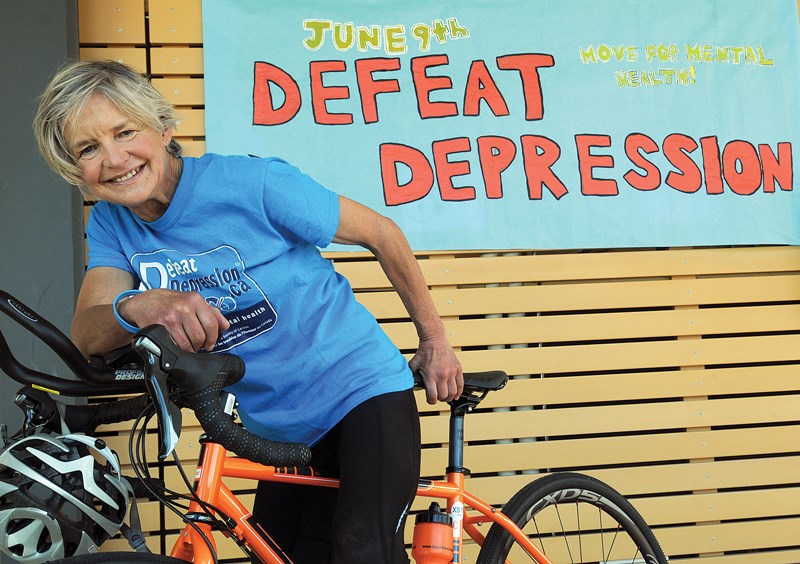She’ll stare down 7,500-kilometres of unforgiving highway, face loneliness, exhaustion and the elements – but when it’s over she’ll have one heck of a good How I Spent My Summer Vacation essay.
For the last 15 years Jane Weller has worked as a teacher in North Vancouver. She specializes in distributed learning, offering one-on-one tutelage to students taking online courses. Many of Weller’s university-bound students are looking to turn a C+ into a B or an A. But for teens coping with anxiety and depression, distributed learning offers a lifeline, she explains.
“They have this fear of going to class,” she says. “I feel I’m helping a lot of those students succeed, because they’d have no other way of graduating without having our online courses.”
Discussing the travails of her students, Weller says she doesn’t always understand their problems.
“I’m from another generation so I have absolutely no idea what they’re going through,” she says. However, she emphasizes that her students’ problems are “very real.”
With those young people in mind, Weller is planning to dip the back wheel of her bicycle into the saltwater of Strait of Georgia on Canada Day. If everything goes according to plan she’ll reach St. John’s, N.L. in 60 days and raise $8,000 for the Mood Disorders Society of Canada in the process.
A registered charity, MDSC helps mental health patients find treatment and advocates on their behalf for access to inexpensive medications.
During the most recent reporting period, MDSC spent 74 per cent of their funds on charitable programming and 26 per cent on management and administration, according to the Canada Revenue Agency.
Weller’s cross country trip is part of Defeat Depression, which aims to increase understanding and reduce stigma of mental health problems.
While the most recent federal budget increased funding for mental health, there is still a long way to go to correct what has been “historic, woeful under-funding,” according to a statement from the Canadian Mental Health Association.
“I guess because I’m raising money for mental health, it’s really spurring me on to do this ride and to finish it,” Weller says.
Her plan is to zig from Hope to Hells Gate, zag past Medicine Hat and Moosejaw and zip through Portage la Prairie, where she’ll be a little more than one-quarter of the way through her journey.
To support her ride, Mountainside Secondary is hosting a Ride for Mental Health Awareness Friday from 9:30 a.m. to noon. There will be snacks, prizes, and a stationary bike.
While the bicycle isn’t a cure for a mental health disorder, research has shown a correlation between physical activity and lower levels of anxiety and depression, according to a 10-year study authored by Thomas Stephens at the National Center for Health Statistics in Maryland.
Weller says she hasn’t toured “for a while,” but the Edgemont teacher lists bicycling trips through Tibet as well as Rwanda (where she guesses she was the first female cyclist to circumnavigate the country) on her resume.
“I’m obsessed with cycling,” she says with a laugh. “Much to my husband’s chagrin.”
When she sets out on July 1, Weller plans to be equipped with rain gear, food, and a hope “for a tailwind through the Prairies,” she says.
It’s meant to be a challenge but Weller is anticipating “some really magic days,” as she watches the provinces whizz by.
Cycling 130 kilometres a day for 60 consecutive days isn’t such a big deal, Weller says.
“I think a big deal is going to be if I can raise $8,000 for mental health,” she says.
To learn more google No Limits – Jane’s Bike Ride for Mental Health.



